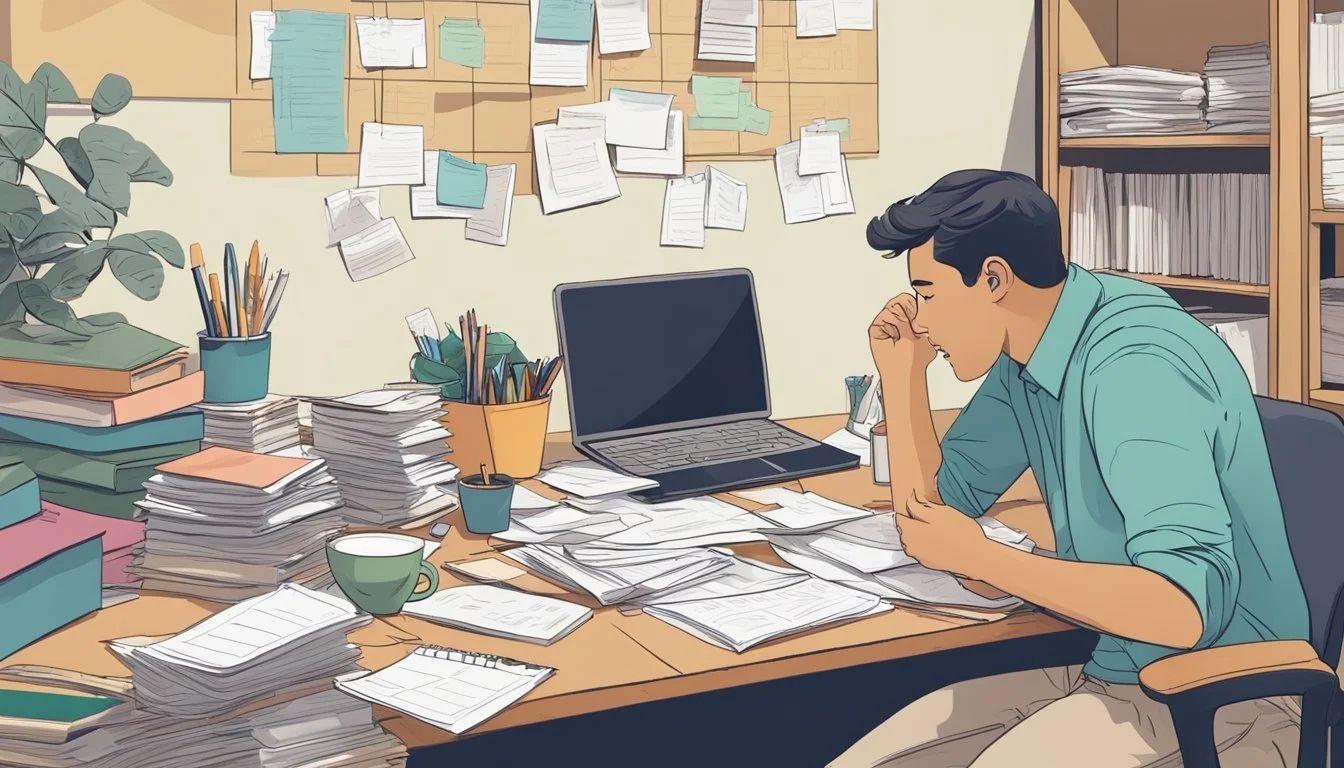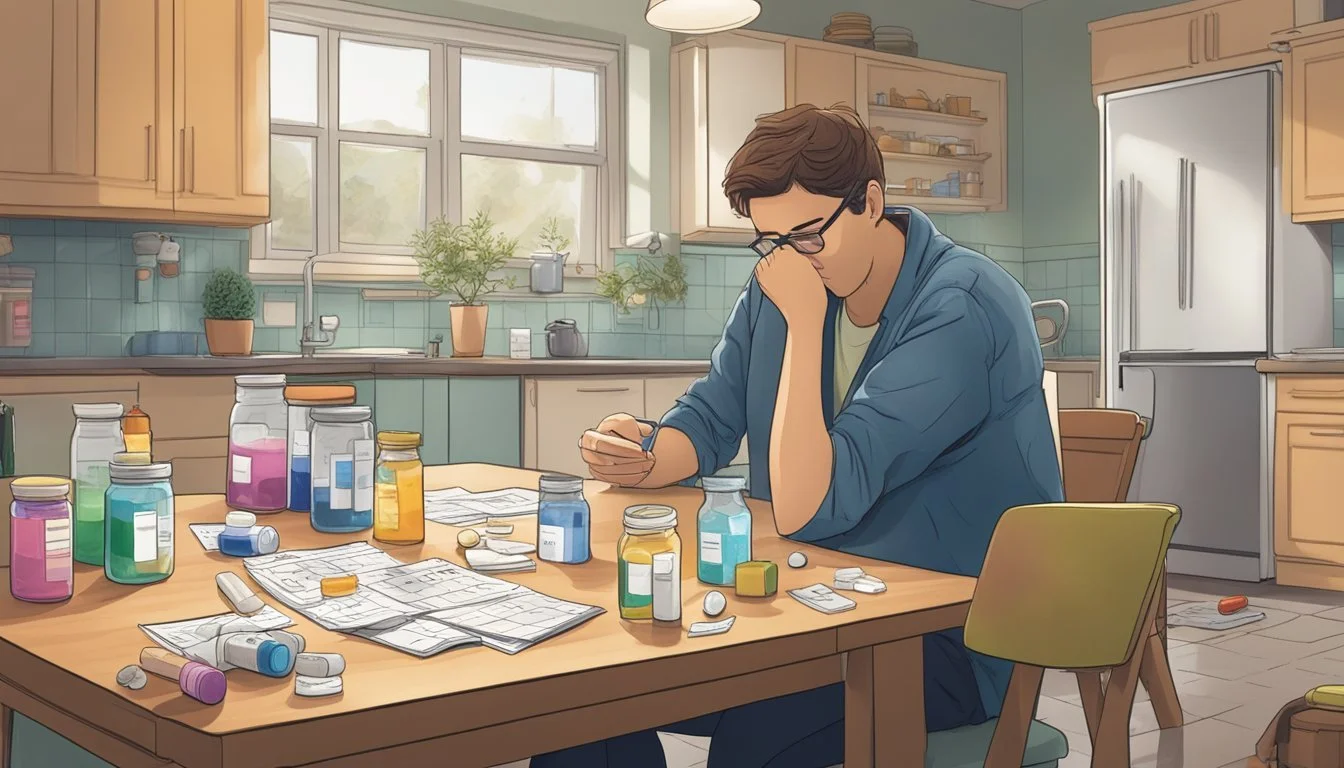8 Ways ADHD Affects Relationships (And How to Navigate Them)
Expert Strategies for Couples
Attention Deficit Hyperactivity Disorder (ADHD) can significantly impact romantic relationships. The symptoms of ADHD, such as distractibility, impulsivity, and difficulty with organization, often create unique challenges for couples. These challenges may lead to misunderstandings, frustration, and communication breakdowns if not properly addressed.
Understanding how ADHD affects relationships and learning effective strategies to navigate these challenges can greatly improve the quality of partnerships. By recognizing the potential pitfalls and developing coping mechanisms, couples can work together to build stronger, more satisfying relationships. This article explores eight common ways ADHD influences romantic partnerships and provides practical tips for overcoming these obstacles.
1) Open Communication
Effective communication is crucial in relationships affected by ADHD. Partners should strive to express their thoughts, feelings, and needs clearly and directly. This helps prevent misunderstandings and reduces frustration.
Active listening plays a vital role in open communication. Both partners need to give their full attention when the other is speaking. This demonstrates respect and shows a genuine interest in understanding each other's perspectives.
Creating a safe space for honest dialogue is essential. Partners should feel comfortable discussing ADHD-related challenges without fear of judgment or criticism. This fosters trust and allows for collaborative problem-solving.
Setting aside dedicated time for regular check-ins can be beneficial. These conversations provide opportunities to address concerns, celebrate successes, and adjust strategies as needed. Consistency in communication helps maintain a strong connection.
Using "I" statements when expressing feelings can help prevent defensiveness. For example, saying "I feel overwhelmed when tasks are left unfinished" is more effective than "You never complete anything." This approach encourages empathy and understanding.
Written reminders or shared digital calendars can support communication efforts. These tools help keep both partners informed and aligned on important tasks, appointments, and commitments.
2) Empathy and Understanding
ADHD can impact the ability to empathize and understand others' emotions. Individuals with ADHD may struggle to pick up on social cues or fully grasp the emotional states of their partners.
This can lead to misunderstandings and feelings of disconnection in relationships. The non-ADHD partner might feel unheard or invalidated when their emotions are not recognized or addressed.
However, many people with ADHD experience heightened emotional sensitivity. They may feel emotions intensely, which can enhance their capacity for empathy when they do connect with others' feelings.
Improving empathy and understanding requires effort from both partners. The ADHD partner can practice active listening and asking clarifying questions. The non-ADHD partner can learn about ADHD's effects on emotional processing.
Open communication about emotional needs and experiences is crucial. Both partners should strive to express themselves clearly and patiently. Seeking professional guidance, such as couples therapy, can provide valuable tools for enhancing empathy and understanding in ADHD-affected relationships.
3) Setting Clear Boundaries
Individuals with ADHD often struggle with maintaining appropriate boundaries in relationships. This can lead to overcommitment, people-pleasing behaviors, or difficulty saying no.
Clear boundaries are essential for healthy relationships. They help define personal limits, establish expectations, and protect emotional well-being.
For those with ADHD, setting boundaries may require extra effort and practice. It's important to identify personal needs and communicate them assertively to partners, friends, and family members.
One effective strategy is to use "I" statements when expressing boundaries. For example, "I need some alone time to recharge" instead of "You're always demanding my attention."
Time management can be a significant challenge for people with ADHD. Setting boundaries around schedules and commitments can help reduce stress and improve relationship dynamics.
It's also crucial to respect others' boundaries. ADHD symptoms like impulsivity or inattention might lead to unintentional boundary violations. Developing self-awareness and actively listening to partners' needs can mitigate these issues.
Consistent reinforcement of boundaries is key. It may take time for both parties to adjust, but maintaining clear limits ultimately fosters mutual respect and understanding in relationships.
4) Practicing Patience
Patience is a crucial skill for individuals with ADHD and their partners. People with ADHD often struggle with impulsivity and may react quickly to frustrations or delays.
Learning to pause and take deep breaths before responding can help manage emotional reactions. This creates space for more thoughtful communication and reduces conflicts.
Partners of those with ADHD benefit from cultivating patience as well. Understanding that certain behaviors stem from the condition rather than intentional disregard can foster empathy.
Setting realistic expectations is key. Recognizing that change takes time and effort helps both partners approach challenges with a more patient mindset.
Practicing mindfulness techniques can enhance patience. Focusing on the present moment rather than fixating on future worries or past mistakes promotes calm and understanding.
Celebrating small victories and progress, rather than dwelling on setbacks, encourages patience and positivity in the relationship. This approach builds resilience and strengthens the bond between partners.
5) Seeking Professional Help
Professional support can be invaluable for couples navigating ADHD in their relationship. Therapists experienced with ADHD can provide tailored strategies and insights to address specific challenges.
Individual therapy allows the partner with ADHD to develop coping mechanisms and improve self-management skills. This can lead to better communication and reduced tension within the relationship.
Couples counseling offers a safe space for both partners to express their concerns and work together on solutions. A therapist can help identify problematic patterns and teach effective communication techniques.
Support groups provide an opportunity to connect with others facing similar challenges. Sharing experiences and learning from others can be empowering and offer new perspectives on managing ADHD in relationships.
ADHD coaches specialize in practical skills and strategies. They can assist with developing organizational systems, time management techniques, and other tools to improve daily functioning.
Psychiatrists or medical professionals may be consulted to discuss medication options if symptoms are significantly impacting the relationship. Proper treatment can lead to improved focus and emotional regulation.
6) Regular Check-ins
Consistent communication is crucial for couples affected by ADHD. Regular check-ins provide an opportunity to address concerns, celebrate successes, and adjust strategies as needed.
Scheduling these conversations helps ensure they actually happen. Some couples find weekly or bi-weekly check-ins work well. Others prefer a quick daily touchbase.
During check-ins, partners can discuss household responsibilities, upcoming events, and personal needs. This helps prevent misunderstandings and resentment from building up over time.
It's important to approach these conversations with openness and empathy. Both partners should feel comfortable expressing their thoughts and feelings without judgment.
Check-ins also offer a chance to recognize progress and efforts made by both individuals. Acknowledging small victories can boost motivation and strengthen the relationship.
For some couples, using a structured format or list of topics helps keep the conversation focused and productive. This can be especially helpful for those with ADHD who may struggle with organization.
7) Fostering Independence
ADHD can sometimes lead to overreliance on partners in relationships. This dynamic may stem from executive function challenges that individuals with ADHD face.
Fostering independence is crucial for both partners' growth and relationship health. The non-ADHD partner can start by identifying areas where their partner can take on more responsibility.
Small, manageable tasks are a good starting point. This might include handling certain household chores or managing personal appointments independently.
Encouragement and positive reinforcement play key roles in this process. Celebrating small successes can boost confidence and motivation for the partner with ADHD.
It's important to resist the urge to step in and "fix" things immediately. Allowing the partner with ADHD to problem-solve builds valuable skills and self-reliance.
Open communication about needs and expectations is essential. Both partners should discuss how they can support each other while promoting independence.
Patience is crucial during this process. Progress may be gradual, but consistent effort can lead to significant improvements in independence over time.
8) Managing Medication
Medication can play a crucial role in managing ADHD symptoms and improving relationship dynamics. For individuals with ADHD, finding the right medication and dosage often requires patience and collaboration with healthcare providers.
Open communication between partners about medication is essential. The person with ADHD should discuss any side effects or concerns with their partner and doctor to ensure optimal treatment.
Consistency in taking prescribed medication is key. Setting reminders or incorporating it into daily routines can help maintain regularity and maximize benefits.
Partners should be supportive and understanding of medication use. They can assist by helping track effectiveness and any changes in symptoms or behavior.
It's important to recognize that medication is not a cure-all. While it can significantly improve focus and reduce impulsivity, it works best when combined with other strategies like therapy and lifestyle adjustments.
Regular check-ins with healthcare providers are necessary to assess medication effectiveness and make adjustments as needed. This ongoing process ensures the treatment remains tailored to the individual's changing needs.
Understanding ADHD in Relationships
Attention Deficit Hyperactivity Disorder (ADHD) can significantly impact relationships. It affects focus, emotional regulation, and task management, creating unique challenges for couples.
What Is ADHD?
ADHD is a neurodevelopmental disorder characterized by persistent inattention, hyperactivity, and impulsivity. These symptoms often persist into adulthood, affecting various aspects of life, including relationships.
ADHD involves differences in brain structure and function, particularly in areas responsible for executive functioning. This can lead to difficulties in organizing tasks, managing time, and controlling impulses.
People with ADHD may struggle with maintaining focus during conversations or completing household chores. These challenges can strain relationships if not properly understood and addressed by both partners.
Common Symptoms of ADHD
ADHD symptoms can manifest differently in adults compared to children. Key symptoms include:
Inattention: Difficulty focusing on tasks, forgetfulness, easily distracted
Hyperactivity: Restlessness, excessive talking, inability to sit still
Impulsivity: Acting without thinking, interrupting others, making rash decisions
In relationships, these symptoms may lead to missed appointments, forgotten promises, or impulsive spending. A partner with ADHD might struggle to listen attentively during important conversations or frequently change topics.
Emotional dysregulation is another common symptom. This can result in mood swings, irritability, or difficulty managing frustration. Such emotional variability can be challenging for partners to navigate and may lead to misunderstandings or conflicts.
Emotional Dynamics in ADHD Relationships
ADHD can profoundly impact the emotional landscape of relationships. Partners may experience heightened sensitivity and face unique communication hurdles that require understanding and targeted strategies to navigate successfully.
Communication Challenges
People with ADHD often struggle with active listening and may interrupt conversations. This can leave their partners feeling unheard or undervalued. Distractibility can make it difficult to maintain focus during important discussions.
ADHD individuals may also have trouble organizing thoughts, leading to tangential or incomplete communication. This can frustrate partners who desire clear, direct exchanges.
To address these challenges, couples can:
Establish "distraction-free" zones for important talks
Use written lists or reminders for complex topics
Practice reflective listening techniques
Set aside specific times for check-ins and discussions
Emotional Sensitivity
ADHD is associated with emotional dysregulation, which can manifest as intense reactions to stimuli. This heightened sensitivity may lead to:
Rapid mood swings
Overreactions to perceived criticism
Difficulty managing anger or frustration
Partners of individuals with ADHD may feel they're "walking on eggshells" to avoid triggering intense emotional responses.
Strategies to manage emotional sensitivity include:
Developing a shared vocabulary for emotions
Practicing mindfulness techniques
Using "time-outs" during heated moments
Seeking professional help for emotion regulation skills
Recognizing and addressing these emotional dynamics can strengthen ADHD relationships and foster deeper understanding between partners.







